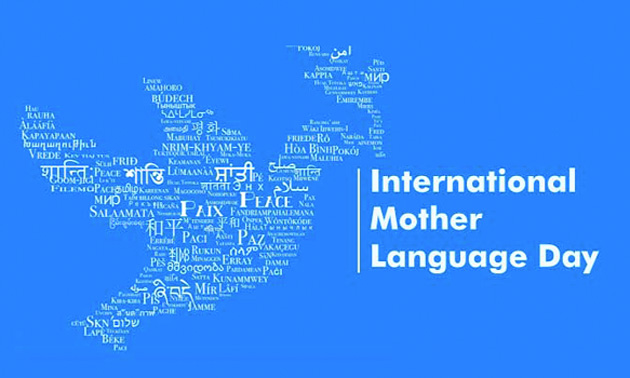Ravinder Singh
International mother language day
Remember, every language tells a story. Let’s keep these stories alive!
Every year on February 21st, the world comes together to celebrate International Mother Language Day. This day serves as a powerful reminder of the importance of linguistic and cultural diversity, promoting multilingualism and the preservation of threatened languages. The idea to celebrate International Mother Language Day was the initiative of Bangladesh. It was approved at the 1999 UNESCO General Conference and has been observed throughout the world since 2000.
The theme of International Mother Language Day celebration 2024 is “Multilingual education is a pillar of intergenerational learning”. Today, 250 million children and young people still do not attend school and 763 million adults do not master basic literacy skills. Mother tongue education supports learning, literacy and the acquisition of additional languages.
The Power of Mother Tongues
The power of one’s mother tongue lies in its ability to connect individuals to their cultural heritage, facilitate effective communication, and foster a sense of identity and belonging. It’s often the language in which emotions are most deeply felt and expressed, and it can serve as a tool for preserving traditions and passing down knowledge from one generation to the next. Additionally, research suggests that proficiency in one’s mother tongue can enhance cognitive development and academic achievement. However, many languages face challenges due to globalization, dominance of certain languages, and lack of resources.
Why Multilingual Education Matters
UNESCO champions multilingual education as a cornerstone of quality learning and sustainable societies.Studies show that children who learn in their mother tongue achieve better academic results, develop stronger cognitive skills, and have a deeper understanding of concepts. Moreover, multilingual education fosters respect for diverse cultures and promotes social inclusion.It improves cognitive functions like problem-solving, multitasking, and memory. It fosters appreciation and understanding of different cultures, promoting tolerance and global citizenship. Multilingual individuals have better job prospects and can access a wider range of career opportunities, especially in a globalized economy. It helps preserve and promote indigenous or minority languages, preventing language loss and contributing to linguistic diversity.
Celebrating Around the World
Celebrating International Mother Language Day is important because it recognizes the significance of linguistic diversity and promotes the preservation and promotion of mother tongues worldwide. It honors the language heritage of different cultures and communities, fostering respect for linguistic rights and cultural identity. By celebrating this day, we raise awareness about the importance of multilingualism, language preservation, and the role of mother languages in shaping individual and collective identities. It’s an opportunity to celebrate linguistic diversity and promote linguistic and cultural exchange, ultimately contributing to greater understanding and harmony among people from different backgrounds.
On International Mother Language Day, communities worldwide organize various events to celebrate linguistic diversity. These include conferences, workshops, poetry readings, film screenings, musical performances, and language fairs. Individuals can also participate by:
*Learning a few phrases in a new language.
*Reading books and watching movies in different languages.
*Attending cultural events celebrating linguistic diversity.
*Supporting organizations working on language preservation and education.
*Sharing your own language and cultural experiences with others.
The Challenges and the Future
Despite the growing recognition of the importance of linguistic diversity, many languages remain endangered. We need to address challenges like limited educational resources, lack of political will, and negative attitudes towards minority languages.
The International Decade of Indigenous Languages (2022-2032) and the Sustainable Development Goals (SDGs) emphasize the need to empower marginalized communities and ensure inclusive education for all. By working together, we can create a world where all languages and cultures are valued and celebrated.
Let us use International Mother Language Day as an opportunity to reflect on the richness of our linguistic diversity and commit to creating a future where every language thrives.


